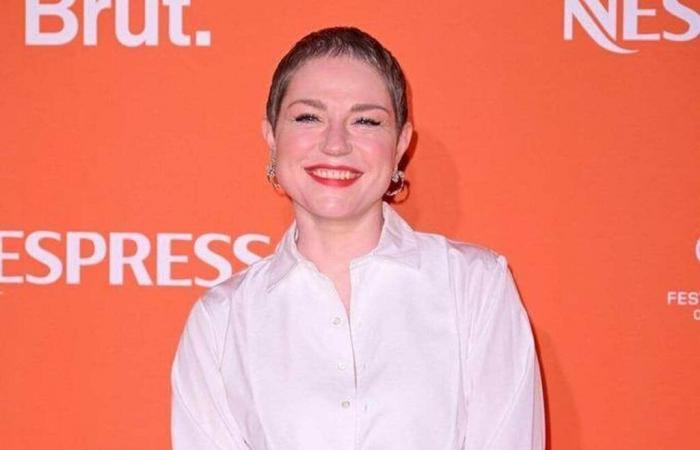
Recently, several public figures have spoken out to testify or announce their cancer. In the era of social networks and free speech, revealing your cancer no longer seems like a taboo.
“Deep down, I know I won't live as long as I expected. » Caesarized actress Émilie Dequenne spoke about her cancer, Sunday 1is December 2024, from the issue Seven to Eight on TF1. The 43-year-old Belgian actress revealed in October 2023 that she had a rare cancer, diagnosed two months earlier, and which has kept her away from film sets ever since. A few days ago, on November 13, the mayor of Rouen Nicolas Mayer-Rossignol announced that he had bladder cancer. “We have to talk about it, it’s a taboo,” he declared on the morning of France Inter.
Also read: These seven habits can help reduce the risk of breast cancer
Improving support
As more and more public figures speak out about their cancer, is revealing one's illness no longer as taboo as it once was? “Things have evolved considerably in twenty years,” confirms Patrick Bourguet, president of the Ille-et-Vilaine committee of the National League Against Cancer. According to a survey carried out in 2021 by the RoseUp association, which supports, informs and defends the rights of women affected by cancer, 67% of French people believe that cancer is no longer taboo or that it is less and less so. less. “The taboo has fallen in particular thanks to the improvement in care, advances Patrick Bourguet. Thirty years ago, we had a pessimistic view of the disease; now a whole therapeutic arsenal is offered to the sick person. »
The national mobilization plan against cancer, more commonly called in its shortened form “cancer plan”, adopted in 2003 under the presidency of Jacques Chirac, changed the situation: establishment of a cancer announcement consultation, 'a proposal for a personalized treatment plan, presentation of supportive care (all the care and support necessary for sick people throughout the illness, in conjunction with onco-hematological treatments where available)… “Today, doctors are trained to speak clearly to patients, there is a real philosophy of sharing the diagnosis,” explains the president of the Ille-et-Vilaine committee of the National Cancer League.
Today, care is completely different thanks to psychological monitoring, systematically offered in all oncology departments. “Patients accept more easily to go see a psychologist and speech is much freer,” reports Ghislaine Cervini-Souchon, psychotherapist specializing in psycho-oncology and EMDR (eye movement psychotherapy which targets individuals' traumatic memories). And the improvement in lifespan when suffering from cancer erases the taboo. “Forty years ago, it was an illness from which we would inevitably die, today, it is an illness that has become chronic,” notes Patrick Bourguet.
Also read: “I’m losing another summer of my life”: at Cholet hospital, when cancer strikes twice
A long-taboo disease
At the time, information sharing by healthcare workers was not as straightforward. “In the 1990s, it was difficult for doctors to say the word 'cancer' in front of their patients,” indicates Ghislaine Cervini-Souchon.
In the public sphere, “long illness”, the watered-down version of the word “cancer”, was essential. Former President François Mitterrand himself hid his state of health for ten years, before admitting to advanced prostate cancer in 1992. “Some women diagnosed with cancer told their doctors ‘don’t tell my husband’” says the one who was a cancer nurse before turning to psychotherapy.
In 2013, the revelation of Dominique Bertinotti, then Minister Delegate for Family, suffering from breast cancer, in the columns of Monde, had sounded like an explosion in the political world. She had for a time chosen silence, following the Councils of Ministers, sessions in the Assembly and chemotherapy; then broke the secret. For what ? “To help change society’s view of this disease whose name is terribly anxiety-provoking. To show that you can have cancer and continue a working life. So that employers understand that taking long-term sick leave is not necessarily the best solution. So that there is less fear, more understanding. So that we reflect on the inequalities faced with the cost of comfort treatments, such as special nail polish or wigs, which are so important”, she had listed to our colleagues.
A taboo still present in the professional sphere
However, even today, the announcement of the diagnosis in the professional sphere is feared. The socialist mayor of Rouen, Nicolas Mayer-Rossignol, explained that he wanted to express himself on a subject “taboo” according to him. “At work, you are either well, and expected to be healthy and high-performing, or you are sick. In this case, you are isolated, because you need to be treated. There is a border between isolation and being benched, or the impression of being benched, which can quickly be crossed, without necessarily bad intentions. he declared on the microphone of France Inter.
According to the RoseUp association survey, 65% of French people think it is difficult to talk to your work colleagues about it. “It’s difficult because we are in a society where we always have to perform, where we do not have the right to be vulnerable and cancer is still seen today as a fragility, states Ghislaine Cervini-Souchon. The word cancer is always associated with death, when I have patients with this disease who come to see me, it is always the fear of death that comes back. »
To further reduce this taboo, the National League Against Cancer has launched the Lig'entreprises engaged contre le cancer operation, the objective of which is prevention and awareness. For example, the training of managers and the adoption of inclusive HR policies taking into account vulnerable situations that arise during professional life.
And what about the multiplication of testimonies, from anonymous people but also from public figures, like Émilie Dequenne and Nicolas Mayer-Rossignol, or even Bernard Tapie, who died in 2021, who shared his fight against several tumors? “Patients can identify with them and say to themselves “if this person talks about it, I too can talk about it without shame”, concludes Ghislaine Cervini-Souchon.





